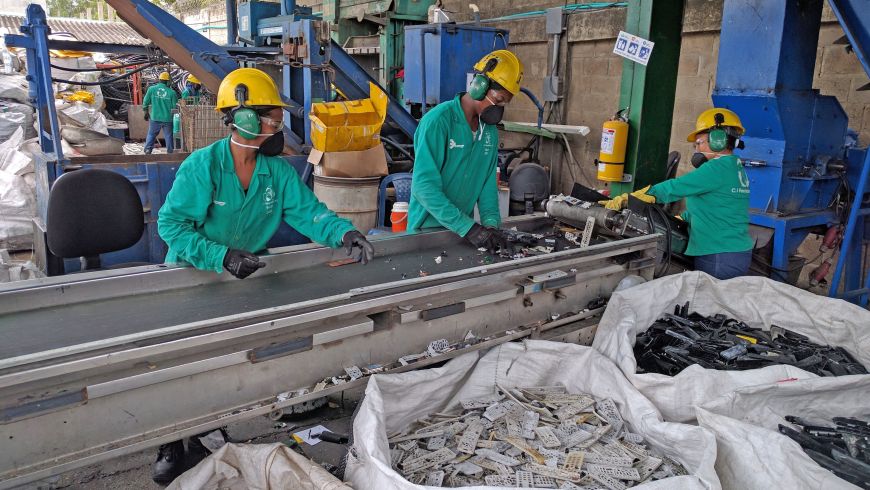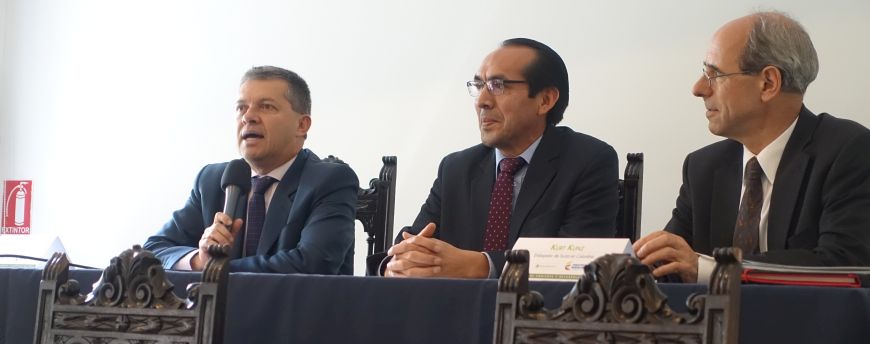Multi-year project successfully concluded
Empa supports Colombia in e-waste recycling

Only winners
Since 1998, Empa has supported SECO projects in the field of economic development cooperation as a scientific and technical reference center. Through its dedicated efforts in its partner countries, SECO aims to promote sustainable economic growth. The objective is that all social groups and classes in the society are able to benefit from this growth. The e-waste recycling cooperation with Colombia started in 2009. Together with public sector partners such as the Colombian Ministry of Environment, and private partners such as the National Industrial Association (Andi), the legal, organizational, and technical principles were developed in order to establish take-back and recycling schemes for used electrical and electronic devices. This offers ecological, economic, and social benefits for the entire country. It does not only create jobs and generate economic activity, because recyclable materials can be removed more efficiently and thus the processes can be made more cost-effective: it also protects the environment from the consequences of incorrect recycling and uncontrolled disposal. "The implementation of a take-back system for electrical waste is a project which really only has winners," says Heinz Böni of Empa's Technology and Society Lab.
Among other activities, vocational training teachers in Colombia have received a train-the-trainers training in order that they can train their students to become active in this newly-emerging economic sector. "The model for this was the dual education system in Switzerland," says Böni. Empa has many years' experience of researching and dealing with electrical and electronic waste. The group led by Böni also brings great experience in the field of development cooperation. In parallel to the project in Colombia, a similar project was supported in Peru. For both projects, Empa worked with the World Resources Forum Association (WRFA), which is based in St. Gallen and originates from Empa. More projects are under development in Ghana, India, and Egypt.

Empa and Colombia – a success story
Empa's contacts with Colombian partners were first established back in 1995. These contacts were developed further, and a Cleaner Production Program was initiated in 1998 with SECO funding. This program involves advising Colombian companies to develop environmentally friendly and more efficient production methods. By implementing the recommended measures, these companies can achieve higher production rates with lower use of resources, which makes them more competitive in the international market. Today, the Cleaner Production Program is an autonomous non-governmental organization (NGO) based in Medellín.
For both programs, collaboration with a research institution such as Empa, which carries out industry-related research, is particularly important, as it means that the latest research findings can also be made available to partners in developing countries. Thus, Empa is making a major contribution to sustainable development and to finding solutions for global problems.
Homepage of SECO's Sustainable Recycling Industries program
Webpage of Empa's Critical Materials and Resource Efficiency research group
-
Share
